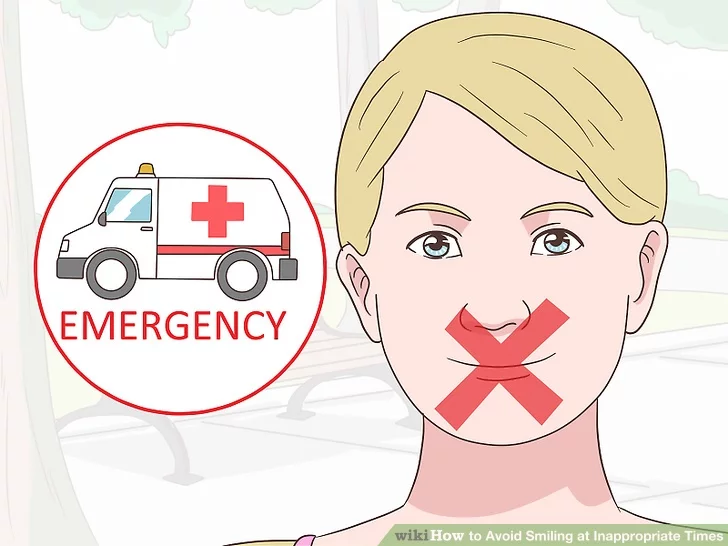Habitual smiling is considered a good practice in most cases. In interviews, it is generally viewed positively as it conveys warmth and approachability. In customer service, it helps build relationships with customers. In entertainment and media, a habitual smile can convey confidence and positivity, but context is essential.
There is a lot to know if you are interested in exploring is habitual smiler good or bad. Go through this whole article to know clearly about the positive sides of habitual smile and when to avoid it. So let’s start reading.
Key Takeaways
- Habitual smiling is generally considered a positive practice in various contexts, including interviews, customer service, and entertainment.
- The perception of whether habitual smiling is good or bad depends on the authenticity of the smile and the situation.
- To improve your habit of smiling, mirror practice, using reminders, and focusing on the benefits can improve genuine smiles.
- If you need to control excessive smiling in inappropriate situations, mindfulness, and choosing replacement behaviors can help.
Is Habitual Smiler Good or Bad?
Whether being a habitual smiler is considered good or bad can vary depending on the context and the individual’s authenticity. Here are some perspectives:
Interviewing Perspective

In interviews, being a habitual smiler can generally be viewed positively as it often conveys warmth, friendliness, and approachability. It is a desirable quality for many job roles. However, it’s essential to be mindful that constant smiling can be perceived as insincere if it doesn’t align with genuine emotions.
Customer Service Perspective
In customer service roles, being a habitual smiler can be advantageous. It helps create a positive and welcoming environment, builds relations with customers, and conveys warmth and approachability. However, the smile should be genuine and it shouldn’t be looked like forced.
In Front of the Camera
Being a habitual smiler can be an advantage in industries like entertainment, media, and advertising. It can convey confidence, positivity, and approachability, which are often valued qualities. Still, it’s crucial to ensure that the smile is appropriate for the context and aligns with the intended message.
In summary, whether habitual smiling is considered good or bad depends on the situation and how genuine the smile appears. It’s essential to maintain a balance between conveying authenticity and the impact one’s facial expressions have on others.
How to Improve a Smiling Habit?
Here are some strategies to enhance the habit of smiling:
Mirror Practice:
Dedicate a few minutes each morning to stand in front of a mirror and smile at yourself. Make an effort to create a natural smile that extends to your eyes. Identify a smile that you find appealing and try to remember the facial sensations associated with it.
| Product Name | Feature |
| Mirrotek – Full Length Adjustable Over The Door | Easy Instant Hanging and adjustable |
Use Reminders:
Incorporate reminders into your surroundings to prompt you to smile more frequently. This can be as straightforward as placing sticky notes adorned with smiley faces or setting smile reminders on your phone. Over time, these cues will help reinforce the habit of smiling.
Fake It Until It’s Real:
Initially, smiling more often might feel unusual, but don’t be discouraged. Continue to smile, even if it doesn’t feel entirely genuine at first. With consistent practice, it will gradually turn into a second nature.
Focus on the Benefits:
Remind yourself of the numerous advantages of smiling, such as appearing friendly, and approachable. It also reduces stress while boosting your overall mood and potentially even improving your health and longevity. Keeping these benefits in mind can motivate you to smile more frequently.
Authenticity Matters:
While cultivating a habit of smiling is beneficial, it’s crucial to remain authentic. Suppressing or concealing your genuine emotions to maintain a constant smile can be draining. Instead, concentrate on expressing your true emotions, even if they aren’t always positive.
Remember that the objective is to develop a genuine and authentic smile that mirrors your true emotions. This may require time and persistence, but with consistent effort, you can improve your habitual smile.
However, if you are a cooking enthusiast then it is necessary to know whether salt dissolves in oil or not.
How to Control Smiling at Inappropriate Times

Here are some strategies to help reduce an excess smiling habit:
Practice Mindfulness:
Increase your awareness of your thoughts and emotions. This can help you recognize when you’re habitually smiling. It will enable you to consciously relax your facial muscles when unnecessary.
Choose a Replacement Behavior:
To change a habit, consider replacing it with another behavior. If you catch yourself smiling inappropriately, try substituting it with an alternative action. For example, you can take a deep breath or count to ten.
Selective Moments:
You might not need to eliminate smiling entirely, especially in situations where it’s socially expected or appropriate. Select one or two specific situations to focus on while practicing not smiling excessively.
Avoid Triggers:
If you identify specific triggers, such as a particular person or scenario, consider temporarily avoiding those triggers. Try to do it until you’ve become more practiced at controlling your excessive smiling.
Finally, If you find that your constant smiling is causing difficulties, seek guidance from a mental health professional. You also need to know about bitter cream if you are a cooking enthusiast.
Frequently Asked Questions (FAQs):
What Is Habitual Action?
A habitual action is a behavior, state, or way of acting that an individual frequently engages in. This action is something that is done regularly, almost automatically, and can define a person’s routine or behavior pattern.
What Kind of Smile Is Attractive?
An attractive smile typically involves showing most of your teeth in a gentle, arcing manner, extending back into the “buccal corridor.” This space between your teeth and the corners of your mouth is essential for enhancing the appearance of whiter teeth.
What Happens If I Smile Every Day?
If you smile every day, scientific research indicates that this simple act can have several positive effects on your well-being. Smiling can elevate your mood, reduce stress, enhance your immune system, and potentially contribute to a longer and healthier life.
Conclusion
Now you know is habitual smile good or bad for you?
Practicing a habitual smile is important because it not only brightens our own outlook but also positively impacts our interactions. Generally, a habitual smile can convey warmth, friendliness, and approachability, making social interactions more pleasant and effective.




